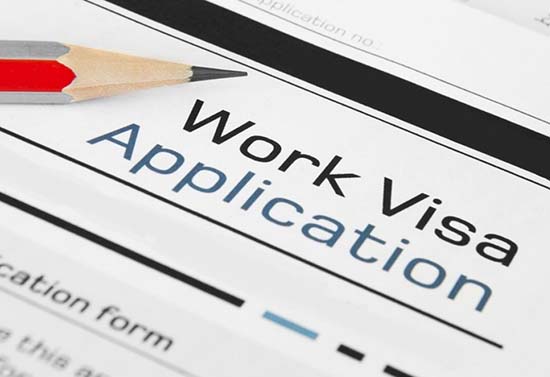Finding a job in Canada can be a fulfilling experience, but it requires careful preparation, research, and understanding of the job market. Whether you’re a newcomer aiming to build a career in Canada or an international professional exploring new opportunities, navigating the Canadian job market can be both challenging and rewarding. This guide will walk you through the steps, tips, and resources you need to secure a job in Canada successfully.
Why Work in Canada?
Canada is known for its thriving economy, high quality of life, and welcoming attitude toward immigrants and foreign talent. With industries ranging from technology and healthcare to finance and natural resources, the country offers diverse job opportunities. But finding a job in Canada isn’t as simple as applying online and waiting for a callback. It requires an understanding of local hiring practices, tailoring your approach to Canadian employers, and leveraging available resources. Let’s explore everything you need to know to make your job search in Canada a success.
Step 1: Understand Canada’s Job Market
Before diving into job applications, it’s essential to research the job market. Canada’s economy is primarily driven by sectors like technology, healthcare, engineering, and finance, with emerging growth in green energy and digital services. Provinces like Ontario, Alberta, British Columbia, and Quebec each offer unique job opportunities based on their key industries.
Key Job Market Insights
- Growing Industries: Canada is seeing growth in tech, healthcare, and construction industries, with increasing demand for professionals in these sectors.
- Labour Shortages: Certain fields, such as skilled trades and healthcare, have labour shortages. This could increase your chances if you have the skills required.
- Regional Variations: Job opportunities can vary by province and city, so researching where your skills are in high demand can enhance your chances.
For example, Toronto and Vancouver are tech hubs, while Calgary and Edmonton have opportunities in oil, gas, and natural resources. By understanding these nuances, you can target your search more effectively.
Step 2: Secure the Right Work Authorisation
In Canada, obtaining the appropriate work authorisation is crucial. While Canadian citizens and permanent residents do not require work permits, foreign workers need a permit to work legally.
Types of Work Permits
- Open Work Permit: This allows you to work for any employer in Canada. Commonly available for certain groups, including spouses of skilled workers, international students, and refugees.
- Employer-Specific Work Permit: Tied to a specific employer, this permit requires a job offer from a Canadian employer and, often, a Labour Market Impact Assessment (LMIA) to demonstrate that hiring a foreign worker won’t affect the Canadian job market.
Most foreign workers need a valid job offer and, in some cases, an LMIA to obtain a permit. For those without job offers, certain immigration pathways, like Express Entry, may lead to work authorisation through permanent residency.
Step 3: Optimise Your CV and Cover Letter for Canadian Employers
Canadian employers expect candidates to present CVs (also known as resumes) and cover letters in a particular format. Unlike in some countries, Canadian CVs are typically concise and achievement-focused.
CV Tips for Success
- Keep it Brief and Relevant: Ideally, a CV should be no longer than two pages. Focus on relevant experiences that directly relate to the job.
- Highlight Achievements: Rather than listing responsibilities, detail your accomplishments in past roles.
- Use Canadian Terminology: Familiarise yourself with Canadian terms that are relevant to your industry.
Crafting a Strong Cover Letter
A cover letter should complement your CV by showing enthusiasm for the role and explaining why you’re the ideal candidate. Address the letter to a specific person when possible, mention the role you’re applying for, and align your experiences with the job requirements.
Step 4: Leverage Networking and Professional Connections
Networking is crucial in Canada’s job market. Studies show that up to 80% of job opportunities in Canada are not publicly advertised. This hidden job market means that networking can significantly boost your chances.
Building Your Professional Network
- Use LinkedIn: LinkedIn is a powerful tool for networking in Canada. Make connections, join industry groups, and engage with posts to build your presence.
- Attend Industry Events: Conferences, seminars, and trade shows are excellent venues to meet potential employers and network.
- Volunteer: Volunteering allows you to gain Canadian work experience, build your network, and show commitment to the community.
Step 5: Utilise Job Search Websites
Several online platforms can help you find job opportunities in Canada. Here are some of the top job sites:
- Job Bank: The Government of Canada’s job board, Job Bank, is one of the most trusted platforms and offers thousands of listings across industries.
- Indeed Canada: Indeed aggregates job postings from across the web, offering a broad spectrum of roles.
- LinkedIn: As a professional social network, LinkedIn allows you to search for jobs and directly connect with recruiters and hiring managers.
- Workopolis and Monster Canada: These sites cater specifically to the Canadian job market and are frequently updated.
It’s recommended to set up alerts on these platforms to receive notifications for roles that match your criteria.
Step 6: Master the Canadian Job Interview Process
Interviewing for a job in Canada might differ slightly from the process you’re accustomed to. Employers here value cultural fit, alongside skills and experience, so expect behavioural questions.
Tips for Acing the Interview
- Research the Company: Understand the company’s mission, values, and products or services. Tailor your answers to align with the company culture.
- Practice Common Interview Questions: Be prepared for behavioural questions like, “Tell me about a time you solved a problem at work.” Use the STAR method (Situation, Task, Action, Result) to structure your answers.
- Ask Questions: Canadian employers expect candidates to ask questions at the end of the interview. Prepare thoughtful questions about the role, team, or company.
By understanding the nuances of the Canadian interview process, you’ll be better prepared to make a positive impression.
Step 7: Explore Alternative Job Search Resources
Canada offers various resources to help job seekers, including government programmes, non-profit organisations, and job search agencies.
Additional Resources
- Immigrant Settlement Agencies: Organisations like ACCES Employment and the Immigrant Services Association of Nova Scotia provide free job search support, training, and mentorship.
- Career Fairs: Job fairs are held regularly across Canada and offer a great way to meet employers face-to-face.
- Job Search Workshops: Many cities offer free workshops to teach job search strategies, resume writing, and interview skills.
These resources are tailored to the Canadian job market and can be invaluable for newcomers.
Step 8: Stay Positive and Persistent
Finding a job in Canada can take time, especially if you’re new to the country. Persistence, adaptability, and a positive attitude are crucial. Remember that every application, interview, and networking event is a learning opportunity.
Embrace Your Canadian Career Journey
Embarking on a job search in Canada may seem challenging, but with the right approach, it’s an achievable goal. By understanding the Canadian job market, building a strong CV, networking effectively, and utilising available resources, you’re well on your way to securing your dream job. Remember, Canada values skilled, dedicated professionals from all backgrounds, and your unique skills can help fill vital roles in the workforce.
As you take each step on this journey, keep in mind that persistence and preparation are key. Good luck with your job search, and welcome to the start of a rewarding career in Canada!





